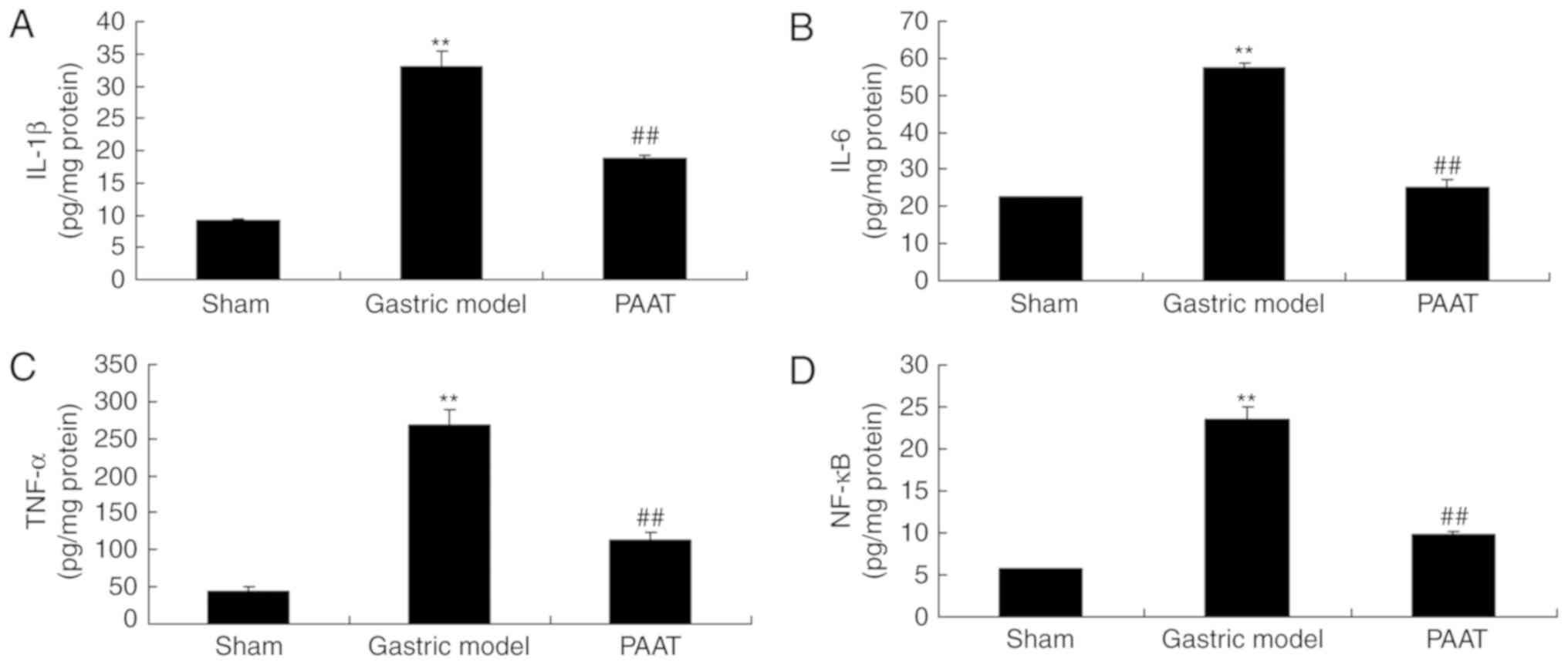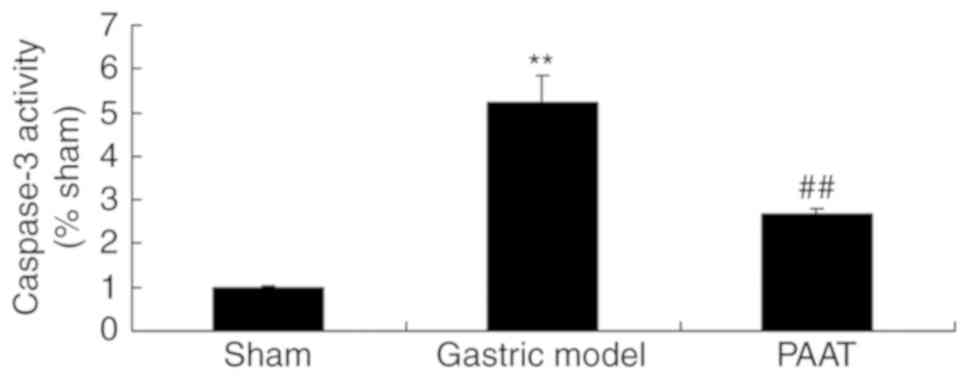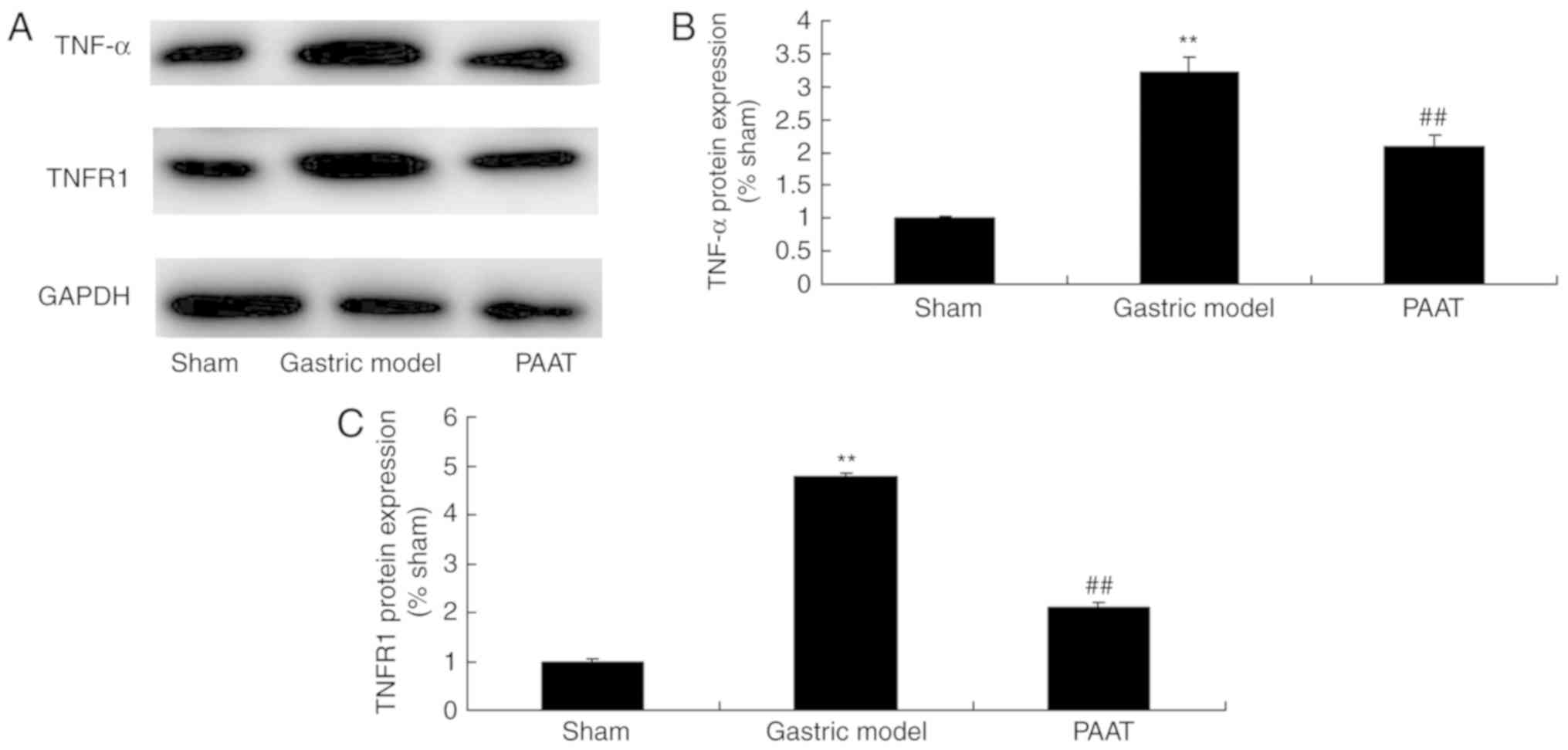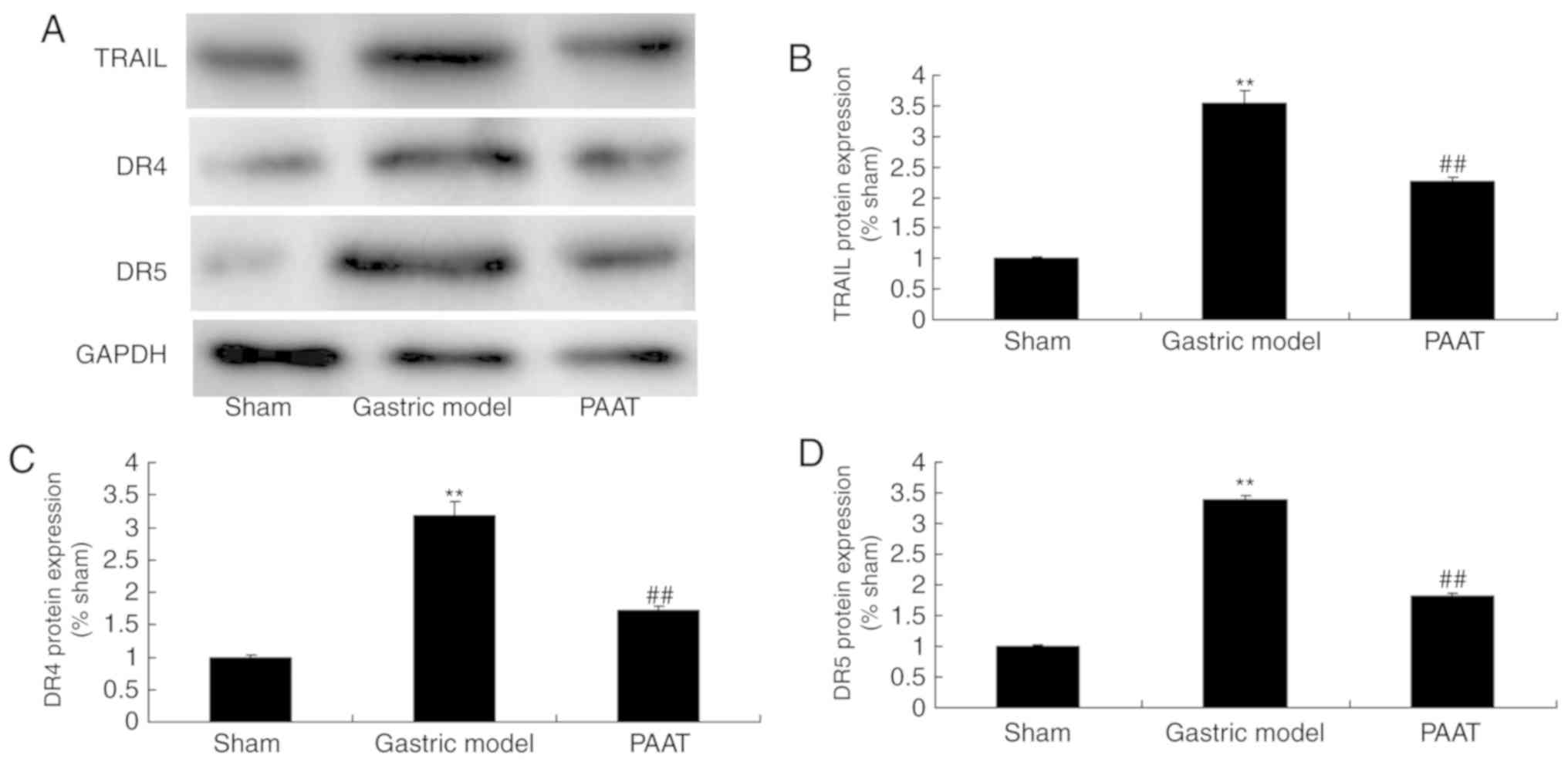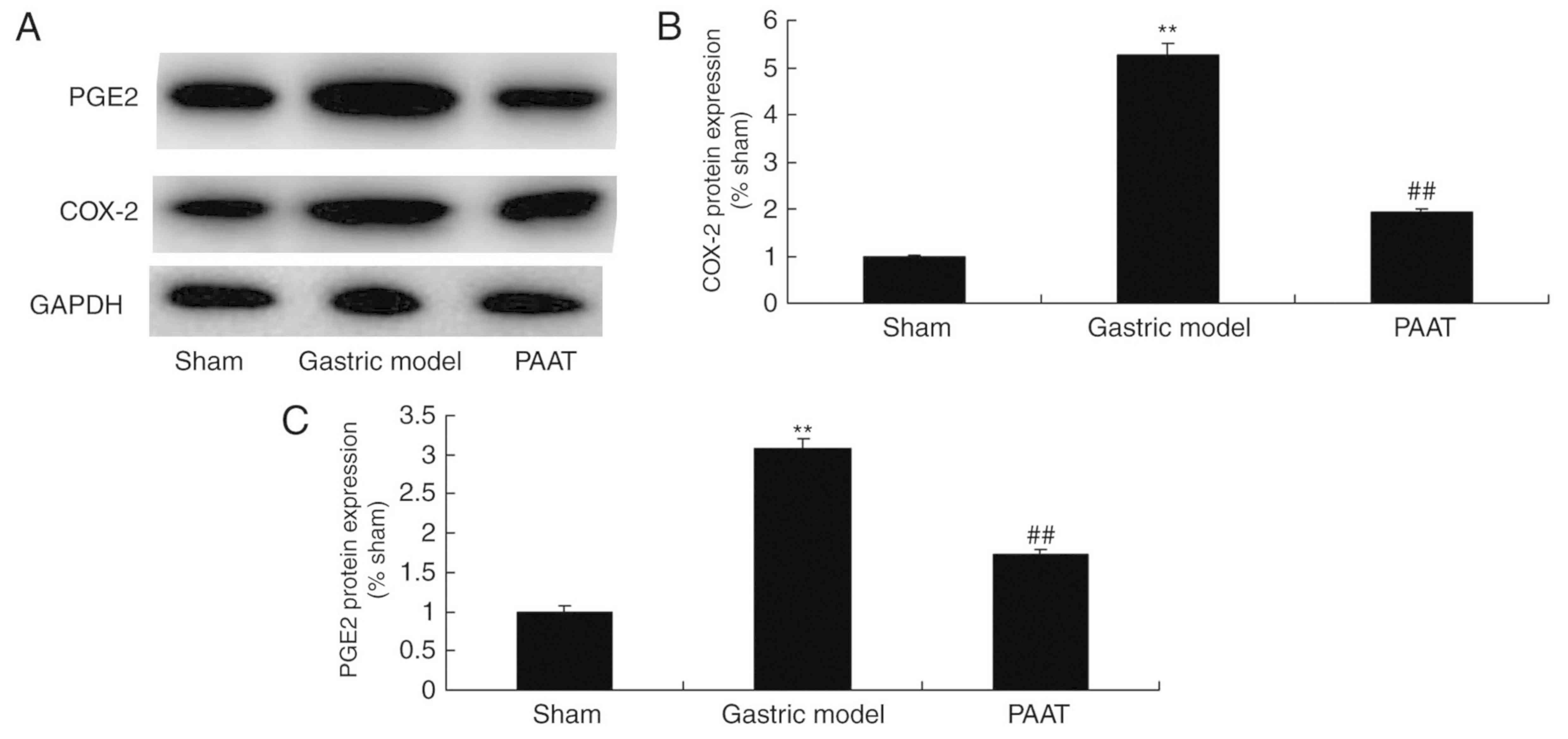|
1
|
Ward MG, Warner B, Unsworth N, Chuah SW,
Brownclarke C, Shieh S, Parkes M, Sanderson JD, Arkir Z, Reynolds
J, et al: Infliximab and adalimumab drug levels in Crohn's disease:
Contrasting associations with disease activity and influencing
factors. Aliment Pharmacol Ther. 46:150–161. 2017. View Article : Google Scholar : PubMed/NCBI
|
|
2
|
Bukowczan J, Warzecha Z, Ceranowicz P,
Kusnierz-Cabala B and Tomaszewska R: Obestatin accelerates the
recovery in the course of ischemia/reperfusion-induced acute
pancreatitis in rats. PLoS One. 10:e01343802015. View Article : Google Scholar : PubMed/NCBI
|
|
3
|
Broekman MM, Coenen MJ, Wanten GJ, van
Marrewijk CJ, Klungel OH, Verbeek AL, Hooymans PM, Guchelaar HJ,
Scheffer H, Derijks LJ, et al: Risk factors for thiopurine-induced
myelosuppression and infections in inflammatory bowel disease
patients with a normal TPMT genotype. Aliment Pharmacol Ther.
46:953–963. 2017. View Article : Google Scholar : PubMed/NCBI
|
|
4
|
Del Carmen S, de Moreno de, LeBlanc A and
LeBlanc JG: Development of a potential probiotic yoghurt using
selected anti-inflammatory lactic acid bacteria for prevention of
colitis and carcinogenesis in mice. J Appl Microbiol. 121:821–830.
2016. View Article : Google Scholar : PubMed/NCBI
|
|
5
|
Negroni A, Prete E, Vitali R, Cesi V, Aloi
M, Civitelli F, Cucchiara S and Stronati L: Endoplasmic reticulum
stress and unfolded protein response are involved in paediatric
inflammatory bowel disease. Dig Liver Dis. 46:788–794. 2014.
View Article : Google Scholar : PubMed/NCBI
|
|
6
|
Roblin X, Boschetti G, Williet N, Nancey
S, Marotte H, Berger A, Phelip JM, Peyrin-Biroulet L, Colombel JF
and Del Tedesco E: Azathioprine dose reduction in inflammatory
bowel disease patients on combination therapy: An open-label,
prospective and randomised clinical trial. Aliment Pharmacol Ther.
46:142–149. 2017. View Article : Google Scholar : PubMed/NCBI
|
|
7
|
Brzozowski T, Konturek PC, Konturek SJ,
Sliwowski Z, Drozdowicz D, Stachura J, Pajdo R and Hahn EG: Role of
prostaglandins generated by cyclooxygenase-1 and cyclooxygenase-2
in healing of ischemia-reperfusion-induced gastric lesions. Eur J
Pharmacol. 385:47–61. 1999. View Article : Google Scholar : PubMed/NCBI
|
|
8
|
Tlaskalová-Hogenová H, Stěpánková R,
Kozáková H, Hudcovic T, Vannucci L, Tučková L, Rossmann P, Hrnčíř
T, Kverka M, Zákostelská Z, et al: The role of gut microbiota
(commensal bacteria) and the mucosal barrier in the pathogenesis of
inflammatory and autoimmune diseases and cancer: Contribution of
germ-free and gnotobiotic animal models of human diseases. Cell Mol
Immunol. 8:110–120. 2011. View Article : Google Scholar : PubMed/NCBI
|
|
9
|
Akahoshi T, Tanigawa T, Sarfeh IJ, Chiou
SK, Hashizume M, Maehara Y and Jones MK: Selective cyclooxygenase
(COX) inhibition causes damage to portal hypertensive gastric
mucosa: Roles of nitric oxide and NF-kappaB. FASEB J. 19:1163–1165.
2005. View Article : Google Scholar : PubMed/NCBI
|
|
10
|
Li J, Tang HL, Chen Y, Fan Q, Shao YT, Jia
M, Wang JC and Yang CM: Malondialdehyde and SOD-induced changes of
gastric tissues in acute gastric mucosal injury under positive
acceleration. Genet Mol Res. 14:4361–4368. 2015. View Article : Google Scholar : PubMed/NCBI
|
|
11
|
Sarosiek I, Bashashati M, Alvarez A, Hall
M, Shankar N, Gomez Y, McCallum RW and Sarosiek J: Lubiprostone
accelerates intestinal transit and alleviates small intestinal
bacterial overgrowth in patients with chronic constipation. Am J
Med Sci. 352:231–238. 2016. View Article : Google Scholar : PubMed/NCBI
|
|
12
|
Yang Y, Sandhu HK, Zhi F, Hua F, Wu M and
Xia Y: Effects of hypoxia and ischemia on microRNAs in the brain.
Curr Med Chem. 22:1292–1301. 2015. View Article : Google Scholar : PubMed/NCBI
|
|
13
|
Livak KJ and Schmittgen TD: Analysis of
relative gene expression data using real-time quantitative PCR and
the 2(-Delta Delta C(T)) method. Methods. 25:402–408. 2001.
View Article : Google Scholar : PubMed/NCBI
|
|
14
|
Gezginci-Oktayoglu S, Orhan N and Bolkent
S: Prostaglandin-E1 has a protective effect on renal
ischemia/reperfusion-induced oxidative stress and inflammation
mediated gastric damage in rats. Int Immunopharmacol. 36:142–150.
2016. View Article : Google Scholar : PubMed/NCBI
|
|
15
|
Chen T, Kim CY, Kaur A, Lamothe L, Shaikh
M, Keshavarzian A and Hamaker BR: Dietary fibre-based SCFA mixtures
promote both protection and repair of intestinal epithelial barrier
function in a Caco-2 cell model. Food Funct. 8:1166–1173. 2017.
View Article : Google Scholar : PubMed/NCBI
|
|
16
|
Bibi S, Kang Y, Du M and Zhu MJ: Dietary
red raspberries attenuate dextran sulfate sodium-induced acute
colitis. J Nutr Biochem. 51:40–46. 2018. View Article : Google Scholar : PubMed/NCBI
|
|
17
|
Wang XZ, Jiang WD, Feng L, Wu P, Liu Y,
Zeng YY, Jiang J, Kuang SY, Tang L, Tang WN and Zhou XQ: Low or
excess levels of dietary cholesterol impaired immunity and
aggravated inflammation response in young grass carp
(Ctenopharyngodon idella). Fish Shellfish Immunol.
78:202–221. 2018. View Article : Google Scholar : PubMed/NCBI
|
|
18
|
Devkota S and Chang EB: Interactions
between diet, Bile acid metabolism, gut microbiota, and
inflammatory bowel diseases. Dig Dis. 33:351–356. 2015. View Article : Google Scholar : PubMed/NCBI
|
|
19
|
Lin CC, Lin WN, Cho RL, Wang CY, Hsiao LD
and Yang CM: TNF-α-induced cPLA2 expression via NADPH
oxidase/reactive oxygen species-dependent NF-κB cascade on human
pulmonary alveolar epithelial cells. Front Pharmacol. 7:4472016.
View Article : Google Scholar : PubMed/NCBI
|
|
20
|
Zhang F, Xu C, Ning L, Hu F, Shan G, Chen
H, Yang M, Chen W, Yu J and Xu G: Exploration of serum proteomic
profiling and diagnostic model that differentiate Crohn's disease
and intestinal tuberculosis. PLos One. 11:e01671092016. View Article : Google Scholar : PubMed/NCBI
|
|
21
|
Cheng L, Jin H, Qiang Y, Wu S, Yan C, Han
M, Xiao T, Yan N, An H, Zhou X, et al: High fat diet exacerbates
dextran sulfate sodium induced colitis through disturbing mucosal
dendritic cell homeostasis. Int Immunopharmacol. 40:1–10. 2016.
View Article : Google Scholar : PubMed/NCBI
|
|
22
|
Battison AL, Després BM and Greenwood SJ:
Ulcerative enteritis in Homarus americanus: Case report and
molecular characterization of intestinal aerobic bacteria of
apparently healthy lobsters in live storage. J Invertebr Pathol.
99:129–135. 2008. View Article : Google Scholar : PubMed/NCBI
|
|
23
|
Ichimasa K, Kudo SE, Mori Y, Misawa M,
Matsudaira S, Kouyama Y, Baba T, Hidaka E, Wakamura K, Hayashi T,
et al: Artificial intelligence may help in predicting the need for
additional surgery after endoscopic resection of T1 colorectal
cancer. Endoscopy. 50:C22018. View Article : Google Scholar : PubMed/NCBI
|
|
24
|
Watson H, Cockbain AJ, Spencer J, Race A,
Volpato M, Loadman PM, Toogood GJ and Hull MA: Measurement of red
blood cell eicosapentaenoic acid (EPA) levels in a randomised trial
of EPA in patients with colorectal cancer liver metastases.
Prostaglandins Leukot Essent Fatty Acids. 115:60–66. 2016.
View Article : Google Scholar : PubMed/NCBI
|
















